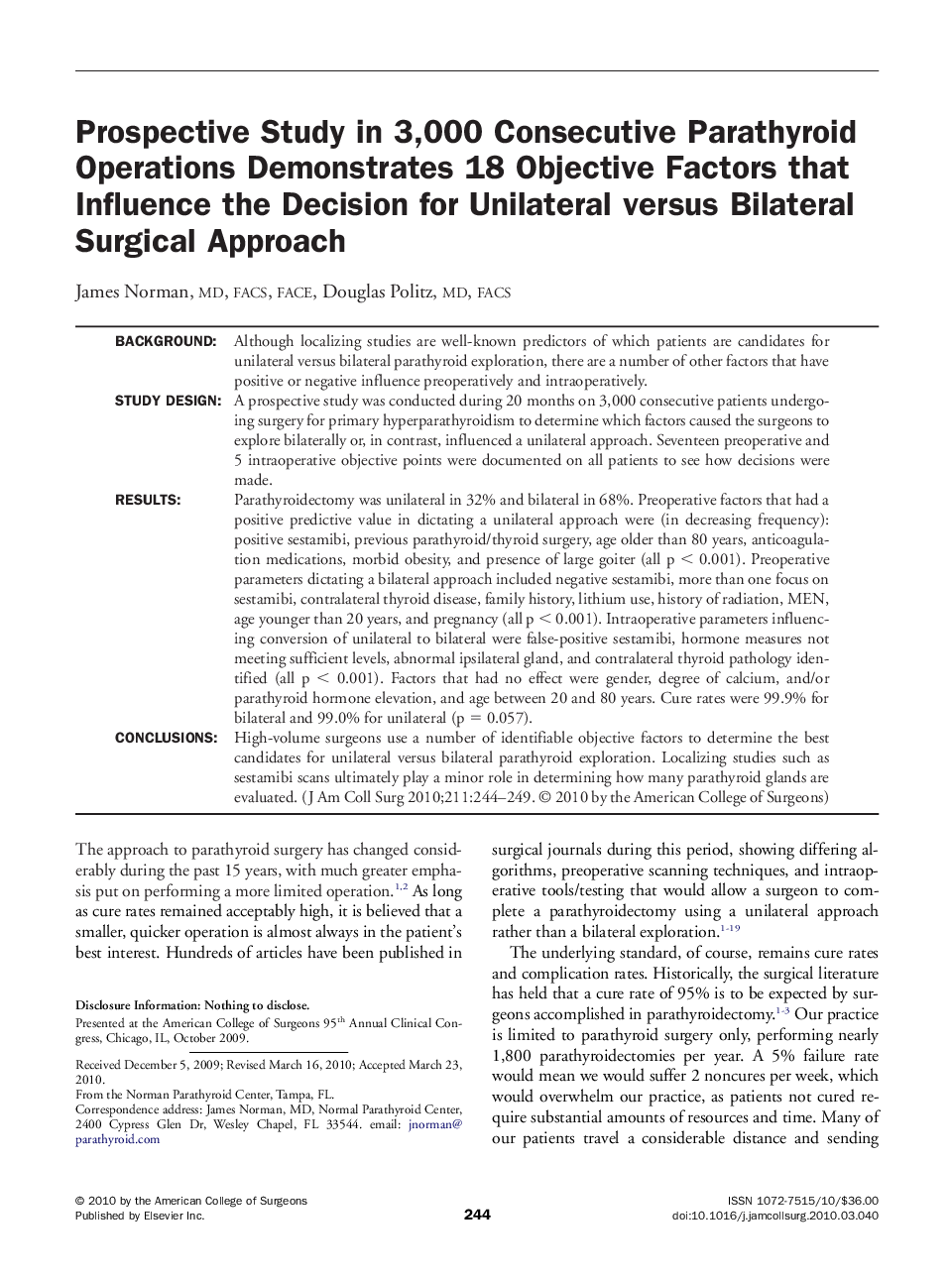| کد مقاله | کد نشریه | سال انتشار | مقاله انگلیسی | نسخه تمام متن |
|---|---|---|---|---|
| 4293154 | 1612283 | 2010 | 6 صفحه PDF | دانلود رایگان |

BackgroundAlthough localizing studies are well-known predictors of which patients are candidates for unilateral versus bilateral parathyroid exploration, there are a number of other factors that have positive or negative influence preoperatively and intraoperatively.Study DesignA prospective study was conducted during 20 months on 3,000 consecutive patients undergoing surgery for primary hyperparathyroidism to determine which factors caused the surgeons to explore bilaterally or, in contrast, influenced a unilateral approach. Seventeen preoperative and 5 intraoperative objective points were documented on all patients to see how decisions were made.ResultsParathyroidectomy was unilateral in 32% and bilateral in 68%. Preoperative factors that had a positive predictive value in dictating a unilateral approach were (in decreasing frequency): positive sestamibi, previous parathyroid/thyroid surgery, age older than 80 years, anticoagulation medications, morbid obesity, and presence of large goiter (all p < 0.001). Preoperative parameters dictating a bilateral approach included negative sestamibi, more than one focus on sestamibi, contralateral thyroid disease, family history, lithium use, history of radiation, MEN, age younger than 20 years, and pregnancy (all p < 0.001). Intraoperative parameters influencing conversion of unilateral to bilateral were false-positive sestamibi, hormone measures not meeting sufficient levels, abnormal ipsilateral gland, and contralateral thyroid pathology identified (all p < 0.001). Factors that had no effect were gender, degree of calcium, and/or parathyroid hormone elevation, and age between 20 and 80 years. Cure rates were 99.9% for bilateral and 99.0% for unilateral (p = 0.057).ConclusionsHigh-volume surgeons use a number of identifiable objective factors to determine the best candidates for unilateral versus bilateral parathyroid exploration. Localizing studies such as sestamibi scans ultimately play a minor role in determining how many parathyroid glands are evaluated.
Journal: Journal of the American College of Surgeons - Volume 211, Issue 2, August 2010, Pages 244–249